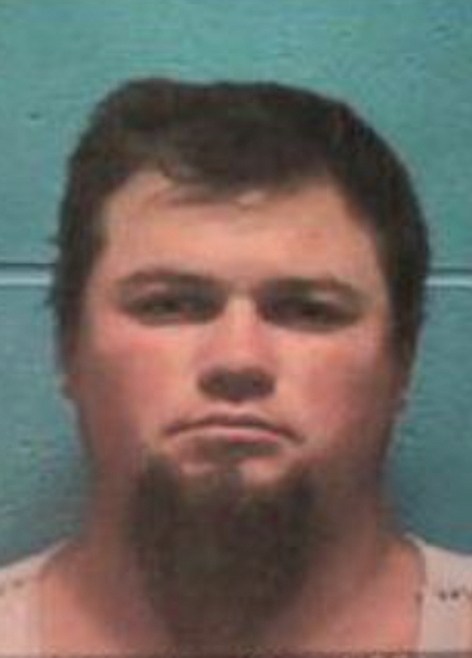High court affirms man's conviction
Bonner County Daily Bee | UPDATED 1 year, 5 months AGO
The Idaho Supreme Court has affirmed a Bonner County man's 2016 conviction for felony vehicular manslaughter.
Peter Franklin Goullette, 30, had appealed his conviction to the state's high court, arguing the district court erred when it accepted his Alford plea since it failed to inquire into the factual basis of his guilty plea. He also contended the court was obligated to inquire into the factual basis of his plea since both the report he submitted and his attorney's comments raised doubt as to his guilt.
However, in an opinion filed in June, the high court justices upheld Goullette's conviction, holding that while an Alford plea must be voluntary and with knowledge of the consequences, it does not require it to be supported by a strong factual basis.
"(W)e hold that the district court did not err in accepting Goullette’s Alford plea because the record as a whole demonstrates that Goullette entered a knowing, voluntary, and intelligent plea. We also hold that the district court did not err by failing to revisit the validity of Goullette’s plea at sentencing because the district court was not presented with evidence raising an obvious doubt as to Goullette’s guilt."
Goullette is serving a 10-year prison sentence for a 2016 collision on McGhee Road that killed Katherine Stelzer and seriously injured Zualita Updike as the pair walked along the road during a lunch break from Litehouse Foods.
Goullette initially pleaded not guilty at his arraignment but later changed his plea, entering an Alford plea to the felony manslaughter charge and to a reckless driving charge connected to the case. Under an Alford plea, an individual admits no wrongdoing in the case but concedes that a jury could have found them guilty of the offense if the case went to trial.
In accepting the plea, the court did not ask additional questions or draw any conclusions from the records regarding the factual basis for the plea. Goullette later submitted a report from an accident reconstruction expert, which contradicted the state expert and suggested he was not guilty of vehicular manslaughter. In that report, the expert concluded skid marks at the scene could not have been left by Goullette's car because it had anti-lock brakes, among other reasons.
However, the district court agreed with prosecutors and sentenced Goullette to a fixed 10 years in prison on the vehicular manslaughter charge.
In his appeal, Goullette argued that the trial court erred in accepting his guilty plea because it failed to make a sufficient inquiry concerning whether a strong factual basis supported the two charges and instead simply relied on Goullette’s short “yes, ma’am” response to questions.
Acting as his own counsel, Goullette filed a petition for post-conviction relief a year later in the 1st District Court. In the civil filing, he argued that he received ineffective assistance from counsel because his attorney did not file a direct appeal in the criminal case despite his request to do so.
The state moved to summarily dismiss the petition, claiming Goullette forfeited his right to post-conviction relief by not seeking an appellate court view and failing to prove ineffective counsel.
In May 2021, Goullette appealed the district court's rejection of his petition to the Idaho Court of Appeals. The appeals court remanded the petition back to district court for further proceedings, ruling it had been dismissed on flawed reasoning that his trial counsel's failure to file an appeal was a strategic or tactical move.
On remand, the district court granted Goullette's petition for post-conviction relief and vacated his original judgment, ordering that the man be allowed to appeal his conviction. In that appeal, the appellate court rejected Goullette's claims and reaffirmed his conviction.
The justices ruled that, as a whole, the facts demonstrated that Goullette knowingly entered into the plea despite his assertions of innocence and concluded the district court did not need to assess the validity of his plea during sentence as the report he submitted did not raise obvious doubt about his guilt.
"However, a close reading of Alford indicates that it only requires the trial court to determine whether the guilty plea is made knowingly, voluntarily, and intelligently," Justice Colleen D. Zahn wrote in the June ruling. "The existence of a strong factual basis to support the charge is but one way of satisfying that inquiry."
While discrepancies exist between the plea agreement and the guilty plea advisory form, including Goullette responding that he had not read the document and his signature below a statement acknowledging he was waiving his right to appeal.
"However, we also note that Goullette has not raised these discrepancies on appeal, nor has he argued that they establish that his plea was not knowingly, voluntarily, and intelligently made," Zahn wrote in the ruling.
The high court found that the confusion arising from the discrepancies does not override the other evidence in the court record and affirmed the decision to accept Goullette's Alford plea.
"However, this case presents a close call," Zahn wrote. "Our decision should not be read as an endorsement of the district court’s process in accepting Goullette’s Alford plea. … While the court minutes, guilty plea advisory form, and acknowledgment of the Alford plea form tipped the balance in favor of finding that Goullette’s guilty plea was constitutionally sufficient in this case, the best practice for accepting an Alford plea would be to ensure the plea colloquy reveals why pleading guilty 'was a voluntary and intelligent choice among the alternative courses of action open to the defendant' despite the defendant’s assertion of innocence."

